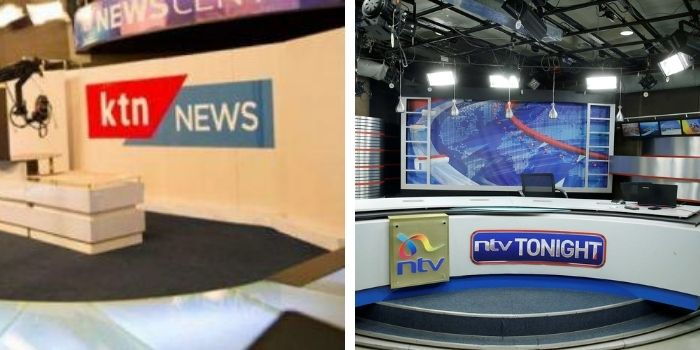Kenya’s democracy faced one of its darkest moments today as the Communications Authority of Kenya (CA), backed by armed police, raided the Limuru transmission centre and switched off the free-to-air signals of two of the country’s leading broadcasters, KTN and NTV.
The move came in retaliation for the media houses’ continued live coverage of the ongoing Gen Z-led protests, despite an earlier directive from the authority banning such broadcasts.
In statements released shortly after the raid, both NTV and KTN confirmed that their signals had been disabled but that they would continue covering the protests via digital platforms.
NTV stated that its Limuru station had been interfered with, leaving millions of free-to-air viewers in the dark. The station, however, remains live on YouTube and social media. KTN, similarly affected, also shifted to online streaming on YouTube, Facebook, and Twitter, in defiance of the government’s controversial order.
As of the time of this publication, Citizen TV was still on air, but a video shared by the broadcaster showed CA officials arriving at its Limuru transmission site, signaling a possible takedown was imminent.
If executed, this would mean a near-total blackout of live television coverage of the protests on all major free-to-air networks, affecting millions of Kenyans who rely on platforms like Signet and Pang.
The CA’s decision to shut down live coverage was backed by a formal letter that referenced Article 33(2) and Article 34(1) of Kenya’s Constitution, as well as Section 46I of the Kenya Information and Communications Act.
The Authority claims the broadcasts violated legal provisions and risked inciting violence. But legal experts and civil society actors say otherwise. They argue the directive is unconstitutional and clearly aimed at suppressing transparency and hiding the actions of police from public scrutiny.
Across the country, images and footage continue to surface showing protesters being tear-gassed, water cannons used against unarmed crowds, and at least one police officer injured. Several protesters have reportedly been shot and rushed to Kenyatta National Hospital. The blackout, critics say, is designed to shield these brutal images from reaching the general public.
Despite the pressure, broadcasters have not backed down. Standard Group PLC, which owns KTN, has affirmed it will not stop informing the public and is currently consulting with legal experts to explore constitutional remedies. Journalists have taken to social media, describing the blackout as an attempt to silence the press and “kill the story while it’s still unfolding.”
With traditional TV signals cut, many Kenyans have turned to social media for real-time updates. Twitter, YouTube, and TikTok have exploded with citizen-recorded videos from Nairobi’s CBD, Thika Superhighway, Mombasa, and Nakuru. Hashtags like #LiveBullets, #MediaBlackoutKE, and #DefendPressFreedom are trending nationally and internationally.
What makes this moment especially alarming is the broader context. Today’s protests mark the anniversary of the 2024 anti-Finance Bill demonstrations that left over 60 young Kenyans dead. Protesters are not only marching for justice for those lives lost but also against what they see as a system unwilling to change. And now, with the state turning off cameras and cutting live feeds, it has become painfully clear that the government would rather hide than confront the truth.
Legal scholars warn that this blackout could trigger a serious constitutional crisis. Article 34(2) of the Constitution clearly prohibits any form of government control or interference with the media.
Any action that prevents broadcasters from operating freely, especially during a public demonstration of national importance, could amount to a violation of both constitutional rights and international press freedom standards.
In the eyes of many Kenyans, this isn’t just about switching off a signal, it’s about turning off the light on democracy. And yet, in this digital era, the truth is harder than ever to suppress.
Even as free-to-air TV goes silent, Kenya’s youth continue to livestream, record, and report. The question now is no longer whether the government can block broadcasts. The question is whether it can stop the people from seeing, and sharing the truth.




